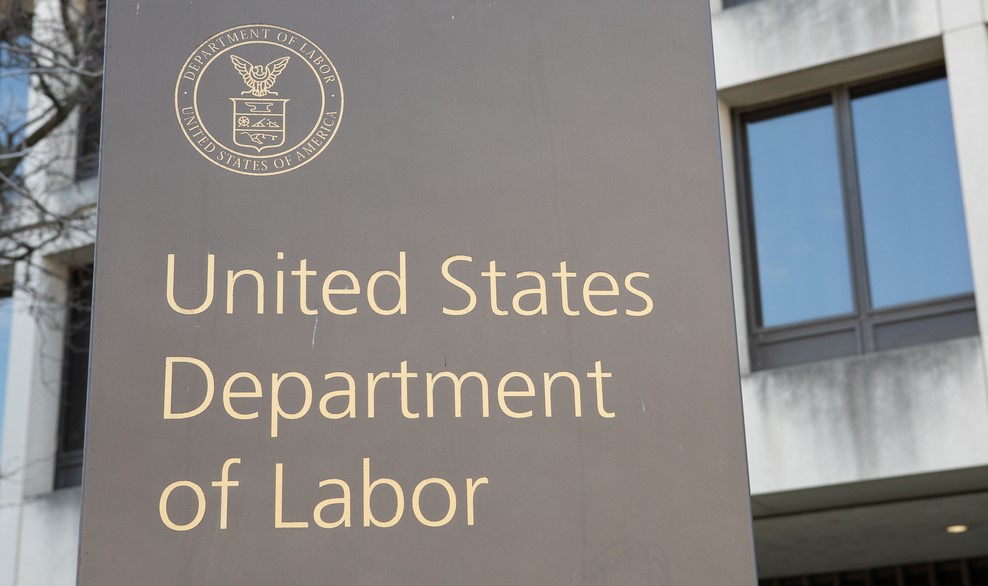To Avoid FLSA Retaliation, Don’t Miss the Oral Complaints
To Avoid FLSA Retaliation, Don’t Miss the Oral Complaints
The Department of Labor (DOL) recently reminded field investigators to be on the lookout for retaliation against employees that are seeking to enforce their rights under the Fair Labor Standards Act (FLSA). On March 10, 2022, the DOL issued Field Assistance Bulletin 2022-02 (FAB) to specifically address FLSA retaliation. After providing a general overview of the FLSA and the requirement to pay minimum wage and overtime for all hours worked over 40 in a workweek, the DOL, in a nutshell, reminds field investigators that anti-retaliation protections remain alive and viable. As such, workers should have the ability to make inquiries about the correct payment of wages and other benefits without fear of adverse employment actions that constitute retaliation. Interestingly, the FAB identifies vulnerable employees such as “those making the lowest wages, immigrant workers, workers of color, and women from exercising their workplace rights and ensuring they are paid the wages they are owed and afforded other protections under the law.” The DOL then pinpoints specific attention at retaliation by stating “it continues to be of paramount importance that WHD [Wage and Hour Division] fully enforce the anti-retaliation provisions of the laws it administers to prevent and stop retaliation as early as possible. (Emphasis added)
Provision for Employees Who are Nursing Mothers
While many employers have some understanding of compliance with the more well-known provisions of the FLSA, employers should not forget about lesser known provisions such as the one that requires the employer to provide reasonable break time for an employee to express breast milk and “a place, other than a bathroom, that is shielded from view and free from intrusion from coworkers and the public, which may be used by an employee to express breast milk.” 29 U.S.C. § 207(r). The provision is in effect for “one year after the child’s birth each time such employee has need to express the milk.” Further, because the DOL also enforces the Family Medical Leave Act (FMLA), a friendly visit from the DOL could also include questions about the FMLA and other provisions of the FLSA that may be pertinent to a specific industry.
Taking an adverse action against employees that are seeking to enforce their rights under the FLSA could land the employer in a sticky retaliation action with the DOL or in a private lawsuit. The FAB lays out potential adverse actions such as termination, confiscating immigration documents, disciplinary actions, threats to employees or their families, reduction in working hours, shift changes or elimination of premium pay, demotion or other such actions.
Employee Friendly Complaint
The FLSA standard for engaging in protected activity is employee friendly, meaning that the employee has engaged in protected activity if the employee expresses a belief that he/she has been paid improperly even if the employer can clearly establish correct payment. Further, even if the employee has not engaged in protected activity, but the employer believes the employee engaged in protected activity and takes an adverse action based on the employer’s belief, the employee is still allowed to bring a retaliation claim.
While there must be causal connection between the protected activity and the adverse employee action, consistent with other employment law statutes, according to the FAB, “because section 15(a)(3) prohibits “any person” from retaliating “against any employee” it follows that a “person” or an entity does not need to be an employer in order to violate section 15(a)(3), and that the employee who filed a complaint or engaged in any other protected activity does not need to be an employee of that “person.” The breadth of this definition of “person” has been alleged to have included an employer’s outside counsel even though the counsel does not meet the definition of “employer” as defined in other provisions of the FLSA.[1] Section 215(a)(3) may also apply in situations where there is no current employment relationship between the parties, for example, protecting an employee from retaliation by a former employer. Just like retaliation provisions under the EEOC, employees claiming FLSA retaliation are protected based on both for opposing the unlawful act and for participating in an investigation of an unlawful act.
The FAB provides examples of what FLSA retaliation looks like and how employers could miss the fact that the employee is actually trying to assert their rights. When specific examples are provided, offended employees may be more likely to think about their own situations and seek relief if their experience looks like the example. The FAB provides the following examples that could subject the employer to an investigation by the Wage and Hour Division (WHD):
Example 1: Employee calls WHD about overtime.
Nelson works as a cook at a restaurant and contacts WHD confidentially to inquire about
overtime pay. Nelson tells another cook what he learned from WHD and his co-worker
tells someone on the wait staff. Later that day, their manager overhears two wait staff
talking about the call and terminates Nelson’s employment.
In this scenario, terminating Nelson’s employment because he contacted WHD (or was
suspected of contacting WHD) would be prohibited. WHD may investigate or Nelson
may file a private cause of action seeking appropriate remedies, including, but not limited
to, reinstatement, lost wages, and liquidated damages.
Example 2: Employee asks for additional break time to express breast milk.
Aisha is a new mother who works for a call center. She uses her lunch break to express
breast milk and needs additional time to finish pumping before she is able to return calls
at her work station. Her boss complains when she is late returning from lunch and tells
her she cannot use any time beyond her meal break for “personal stuff.” When Aisha
asks if she has a right to take another break for pumping later in the day, her boss sends
her home for the rest of her shift without pay.
In this scenario, Aisha was sent home for attempting to exercise her rights under the
FLSA. After investigating, WHD, in addition to requiring the employer to provide the
requisite time and space for nursing mothers in compliance with the law, determines
Aisha may also be entitled to back pay and liquidated damages for wages she lost when
her boss sent her home in retaliation for requesting a break.
While these examples may not apply to all employers, retaliation may come in other subtle ways. If retaliation is found, the aggrieved employee could be entitled to lost wages, liquidated damages, reinstatement and liquidated damages. Claims under the FLSA are subject to a two-year statute of limitations and three years if the violation is found to be willful.
As employers focus on complying with the requirements of the FLSA, don’t let the nuances of the retaliation provisions become a trip wire. Instead, pay attention to employee complaints, verbal and written and respond in a non-retaliatory manner. An annual update on FLSA provisions ensures that newly appointed managers and supervisors can be on the lookout as well.
[1] Under the FLSA, a retaliation claim applies to “any person,” but some courts have interpreted “any person” to mean an employer only. See Leo v. Sarasota Cty. Sch. Bd., 2019 WL 2453440, at *9 (M.D. Fla.) (noting that Fourth and Sixth Circuits have held that FLSA retaliation claims apply to employers only while observing Eleventh Circuit stated FLSA retaliation claims apply to employers in determining whether to award punitive damages for FLSA retaliation); see also Betts v. Work Zone Traffic Control, Inc., 2020 WL 582577, at *3 (10th Cir.) (explaining FLSA retaliation elements by referencing employer actions). Allison v. City of Farmington, No. CV 18-401 KG/SCY, 2020 WL 2307307, at *5 (D.N.M. May 8, 2020), appeal dismissed, No. 20-2076, 2020 WL 7062462 (10th Cir. Sept. 2, 2020)








